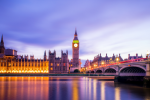
As we approach the end of 2021, I reflect on another challenging year, but a year in which our remarkable Covid vaccine programme enabled our economy to grow, and friends and family to reunite. As 2022 begins, we face a new challenge in the form of a new variant: Omicron.
We always knew that the virus would evolve to overcome immune defences. That is what viruses do: they mutate naturally to stay active, counteract antibodies and evade vaccines. We knew this and we prepared for it, securing enough vaccines to provide booster shots so that we could tackle the very situation we now find ourselves in.
I of course share the frustration that many people are feeling at the news of this variant and the temporary action the Government deems necessary. There is inevitably a sense of deja vu. However, I want to be very clear: we are now in a far stronger position than we were back in March 2020.
We now better understand COVID-19, we are equipped with lifesaving antiviral drugs, and we possess vaccines which have provided significant protection against Alpha, Beta, and Delta variants so far. Indeed, other variants that emerged this year - ‘Lambda’ and ‘Mu’ - did not make the news because of the strength of our vaccination effort.
Yet when it comes to Omicron, analysis suggests that vaccine effectiveness against infection is less than 20%, but with three doses that rises to 75%, which is why the Government has launched an unprecedented drive to get the nation boostered.
By strengthening immunity, the booster is the quickest way of tackling Omicron and so I urge everyone to get boostered as soon as possible.
17.2 million people became eligible for boosters on Wednesday and the NHS will seek to administer 5 million jabs each week. Operational capacity will be increased and military personnel drafted in to provide logistical assistance. This is a national effort to meet a national challenge.
The temporary measures introduced this week are intended to buy time for booster shots to be administered, to slow Omicron’s spread, and to ease pressure on the NHS. Simply put, if the number of infections doubles every three days, NHS capacity cannot keep up. If we want to ensure that the sick and injured can continue to receive treatment this winter, we cannot afford to have hospitals exclusively filled with Covid patients.
These measures do not prevent people from attending nightclubs and high-risk mass events on the basis of their vaccine status, as some have suggested - if you instead want to show that you are covid-free via a lateral flow test, you can. Nobody is having vaccination forced on them to go to mass events. Everyone can choose either to demonstrate vaccination or that they are Covid-free - it is that simple.
It is also important to consider that hospitalisations lag infections by two weeks, so the Government is acting early, and moderately, in an effort to avoid having to act later, and drastically.
This Christmas, let us remember how far we have come, how good it is to be able to be with friends and family, and how vital it is that we continue to stick together as we see off this latest challenge.

